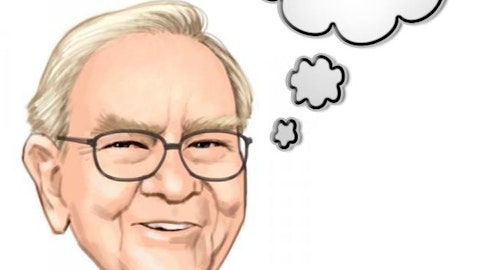They maintain their belief in the organization and in CNB, and we saw a number of new clients coming in, notwithstanding that client segment tends to put their money to work and see yield in the marketplace, and you’ve seen that as a global trend. So we’re managing that function as well as we think about margins and revenue profiles and adjusting our cost base to that. So we expect growth. We are expecting that margin impact that’s come from shifting depositor strategies. We have to adjust to that as come out as quickly along with the changes in volatility around hiring and cost structure there. Therefore, our strategy then is to continue to grow organically saw good growth. You saw very strong growth in capital markets and relatively very strong performance in our U.S. wealth and Canadian wealth franchises.
We saw very good organic growth in our Canadian retail franchise that will all be funded by the strong capital performance that we have. You saw our business commercial bounce back. So from that perspective, strong organic growth, we have to execute on a number of complex strategic acquisitions. HSBC is a complex acquisition and all the work happens upfront. And as we’ve talked about publicly, the conversion and the close are on the same day, and that will we expect to occur in early 2024, but all that work is happening now. And therefore, we’re bearing the cost of that, we’re bearing the effort of doing that, the complexity of doing that while divesting of IS Bank, which is also a complex divestment, but good for our shareholders, good for shareholders and obviously, moving Brewin Dolphin.
And so those are all the moving parts, Ebrahim. Organic growth, we’re very excited about the benefits that we’ve talked to the market about on the HSBC acquisition. We see the benefits there. We’ve affirmed those benefits as we’ve gone through a deeper level of integration work along that side. And we think that creates significant shareholder value from an M&A perspective. So I think you’re seeing a unique opportunity for organic growth with the capital and liquidity that we’ve had, and you’re seeing a unique opportunity with ROI and bringing in a significant acquisition that will be very accretive to shareholders. So I think from that perspective supports kind of a premium ROE opportunity for us.
Ebrahim Poonawala: And just on U.S. in terms of the market share opportunity, all did a great job of post-GFC in the capital market side in the U.S. When you look at it right now given what’s happened with First Republicm, SVB, are the better opportunities in private bank, the regional bank turmoil, does that create some commercial opportunities? Like do you see those and like is RBC ready to act on those?
Dave McKay: Are you talking from an organic perspective?
Ebrahim Poonawala: Organic
Dave McKay: Absolutely, we’ve run in a number of new relationships from both all those challenged banks and failed banks, as you’ve mentioned, and we’ll continue to do so, whether it’s through teams coming in or clients approaching us directly at CNB and taking them on. Those accounts are starting to fund now so absolutely, there’s a significant opportunity given the capital that we have to continue to grow organic. And that’s our primary focus is to serve clients and integrate the HSBC acquisition. All that while remaining above 12%. I think it’s a unique opportunity to create premium shareholder value and ROE.
Operator: Thank you. The next question is from Paul Holden from CIBC. Please go ahead.
Paul Holden: First question for Graeme. With your revised PCL guidance or pushing to the upper end of the range, how are you thinking about commercial/corporate versus consumer? And I guess the reason I ask is consumer looks like it’s still really strong for many reasons you’ve already cited where we’re seeing some pockets of weakness, I think, on the business side. So is there any clear differentiation between the two?





